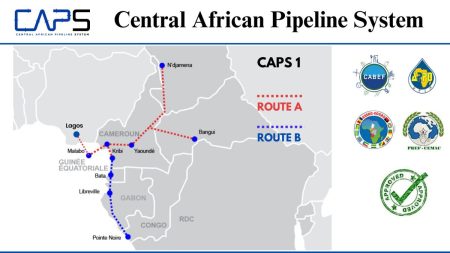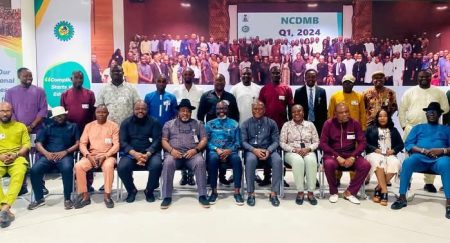
OpeOluwani Akintayo
08 November 2017, Sweetcrude, Lagos — The Nigerian National Petroleum Corporation, NNPC’s Group Managing Director, Maikanti Baru, has said Nigeria’s 127 jetties is not enough to cater for the fuel consumption needs of the country.
The GMD made the statement at the launching of OVH Energy Limited’s Lagos Midstream Jetty, LMJ located at Apapa Habour on Tuesday.
A jetty is a landing stage or small pier where boats can dock or be moored.
OVH Energy is a consortium of Oando PLC Nigeria’s oil and gas company, Vitol Group, and Helios Investment Partners.
“Nigeria currently has 127 jetties which have proven insufficient to service the needs of the populace”.
According to Baru, the insufficiency has led to major fuel importers discharging their products outside the shores of Nigeria, specifically at the ports in Cotonou, Benin, Niger Republic and Lome, Togo.
Speaking further, the NNPC boss expressed commitment to future collaboration with the private sector and further encouraged more private companies to develop innovative solutions that not only aid the development of the country but ease the way we do business.
“I call on the private sector to continuously look for opportunities to partner with the public sector to enable the realisation of the country’s economic goals. The reality is public or private, we all have a role to play in developing and moving the economy forward, an economy that will benefit us all today and generations to come,” he said.
The Federal Government is also committed to increasing spending on critical infrastructure across key sectors whilst partnering with the private sector to bridge existing gaps.
Earlier in the year, speaking on infrastructure development, the Finance Minister, Mrs. Kemi Adeosun said, “We will now target 30 percent of government expenditure on infrastructure, up from 10 percent.”
She noted that government was dedicated to increasing spending on critical infrastructure across key sectors, including power, rail, roads and water, which would underpin growth in priority sectors, especially Agriculture and Agro-Allied, Solid Minerals, Manufacturing, and Power.



